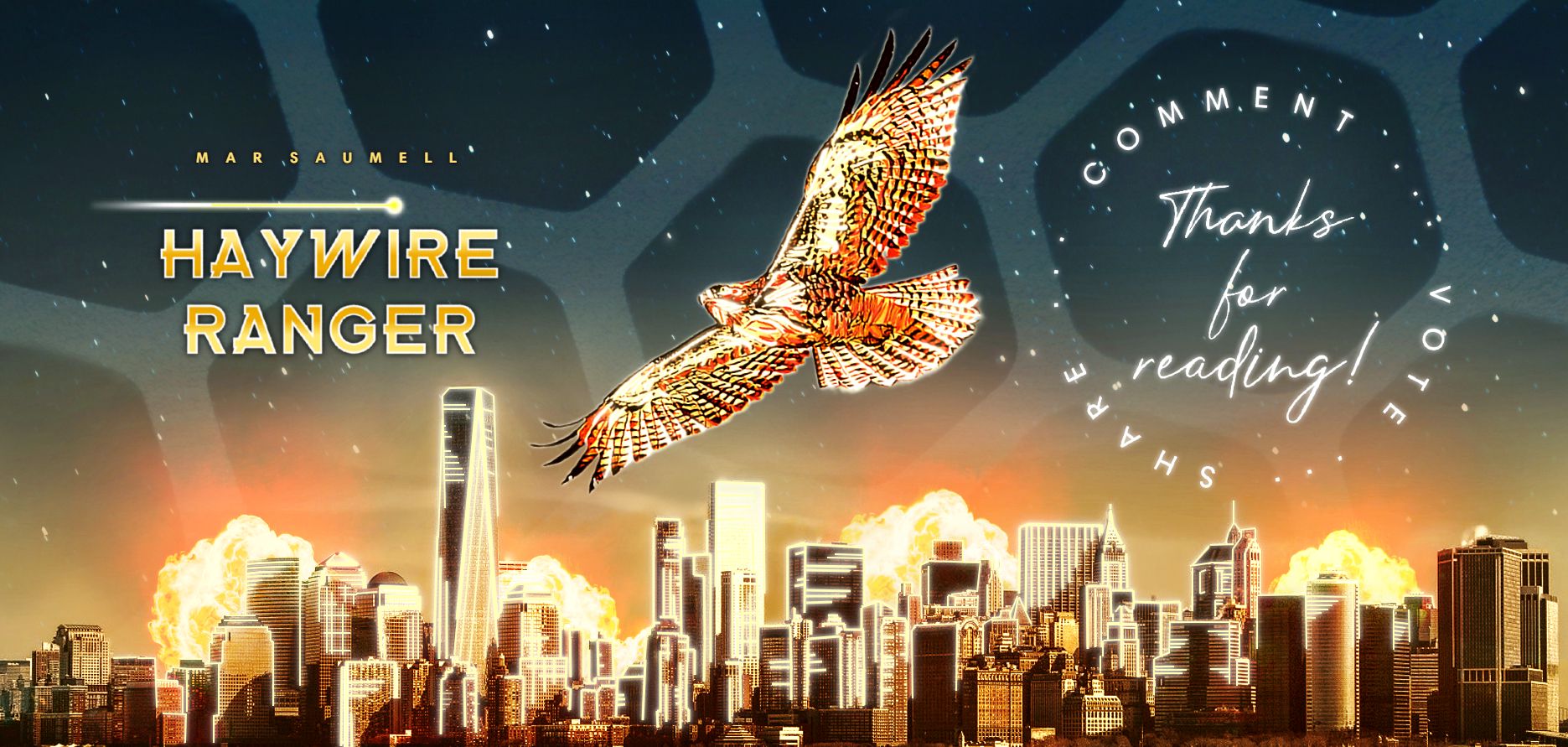BONUS: WHAT IF...
Last November, during Nanowrimo, I asked myself "what if I wrote a science-fiction YA novel inspired in 'How To Train Your Dragon'?" 👀
The result is here for all of you to see. I started to plan the plot. This is how 'Haywire Ranger' was born.
Why does science-fiction get so little attention despite having young, relatable characters, a romantic subplot, and an action-based frame of mind? I don't know the answer to that. 🥺 Whenever I get a new reader, it's usually the same thing: "I don't usually read science-fiction, but I like this story." Many re-phrasings of the same idea keep appearing in the comments section... in this story and my other stories.
While I love debates, I hate drama and opinionated people. To be honest, science-fiction doesn't differ that much from other genres! You still get characters who have similar motivations, desires, and aims in life to those who appear in other genres. Some may fall in love just like in a romance book! Or be part of a chasing sequence with explosions just like in an action film. 🌟
What makes science-fiction different (or scary to read)? I think, yes, it's a different kind of reading experience, but it shouldn't scare anyone! 😊 All the necessary ingredients which are based on science are usually explained in such books. While I'm no expert myself, I try to be concise and true to the science involved in the story.
So, why not mix Hiccup's and Toothless' adventure with some science-fiction characteristics, a pharmaceutical-driven plot based on a documentary I watched (titled 'Immortals?'), some inspiration I drew from 'Horizon: Zero Dawn' and 'Resident Evil'?
I like it when fiction allows writers to play, experiment, emulate, and even surpass those books and people we adore who have inspired us. 😉

RESEARCH
As you might expect, I did my research on some pharmaceutical and medical concepts and issues.
Naomi Hardy, Hazel Beam, and Mrs Evergreen have got physical conditions which affect the plot in different ways. I needed those conditions to be well-founded on real-life health issues. The 'Lifebringer' drug also needed some background checks despite being non-existent in real life. (But if an AI can write fiction, for example, why not have scientists develop drugs which will grant humans immortality? Who knows what might happen in a few years?) 👀
I also did some research on physics and what number of decibels can humans stand―and how many of those can injure you or even kill you.
Sky's enhanced whistle is a mix of a classic pea whistle and an upgrade of an emergency whistle which resembles a sound cannon, a long-range acoustic device (or LRAD). The police forces or the army in some countries use the latter in demonstrations. Some farmers in my country use them too. But everywhere you go, it's a topic that's not free from heated debates. In this book, it's considered a weapon.
I'm not gonna write a full explanation of every single topic I researched here. You may find those as you read, although I think many readers lack the initiative to search for the information they lack. (Now, I'm not a boomer but I'm gonna sound like one right now despite being a millennial. But I'm gonna risk it because I think it's worth it.) People, you have search engines! If you don't know something, you can look it up. It's never been easier! Just at a click (of a few clicks) of a button, and there you go! You can even ask ChatGPT now, if you like. (It didn't use to be like this in the past, you know. 😭)

THE CRAFT OF WRITING
Writing is a craft. You may have the talent, but you definitely need to work for it. 🛠
Working requires effort... and looking at the right places for information, too. Don't get me wrong, but there are a lot of posers out there who pretend to know the rights and wrongs of fiction writing.
May I recommend some good places to find useful information about writing? You can try:
Hellofutureme in YouTube: Tim is obsessed with Avatar: The Last Airbender, but he's great at analysing and giving tips on fiction. (To be honest, if you need to pick an obsession, pick this one. You could be doing worse stuff than fangirling over Zuko.)
K.M. Weiland's blog, helpingwritersbecomeauthors.com: An endless resource on anything you might need to know about the craft of writing!
Kotobee's blog at blog.kotobee.com/book-blurb: I like this blog post on writing blurbs. Very informative!
Dabble's writing resources at dabblewriter.com/resources: They focus on writing, editing, advertising your books... and many more!
Story School in creators.wattpad.com/creators-101: Wattpad offers a bite-size library of concepts you might struggle with.
What if I hadn't checked on those? I wouldn't be where I am now, to be sure.

SOFT VERSUS HARD SCIENCE-FICTION
Sociology, history, politics, psychology, and economics are the topics covered in soft science fiction. Hard science fiction is more concerned with having realistic science based on currently known facts about the universe and its workings, like physics. It emphasises scientific accuracy. But both hard and soft science fiction contain futuristic technologies or elements. 😊
'Haywire Ranger' is my first hard science-fiction book. ⭐ (My other books are soft science-fiction, for the most part.)
Well, this is it for today. Thanks for reading this bonus section! 😉

Bạn đang đọc truyện trên: AzTruyen.Top